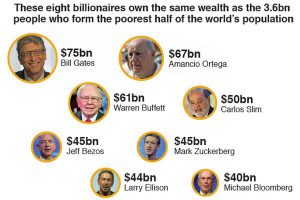Marx revealed exactly how exploitation of labour and capital accumulation occur under capitalism. Marxism rejects all dogma and its development as a living and creative methodology didn’t end with Marx, Engels, and Lenin. It cannot exist without a constant connection to and critique of new experience and phenomena with their many shades, complexities, and contradictions. Here’s an analysis, for Different Truths.
Marxism is the world’s most influential body of thought and has changed the course of human history. It is more relevant than ever for addressing humanity’s urgent challenges despite the desperate efforts by the capitalist class to bury it.
Among their many discoveries, Marx and his lifelong comrade Frederick Engels showed how capitalism comprised one transitory stage of social development and would be surpassed by higher stages. This couldn’t occur without the agency of people, though, and Marx and Engels proclaimed the historic mission of the working class was to lead a revolutionary change to a self-governing society without exploitation.
Marx also revealed exactly how exploitation of labour and capital accumulation occur under capitalism. Marxism rejects all dogma and its development as a living and creative methodology didn’t end with Marx, Engels, and Lenin. It cannot exist without a constant connection to and critique of new experience and phenomena with their many shades, complexities, and contradictions.
Nor can Marxism exist and develop without constant interaction between theory and practice. In the hands of the working class, Marxism is a powerful tool for its self-emancipation – especially through developing revolutionary political strategy and tactics tailored to the specific circumstances of the class struggle of each country.
The world today is a far different place than it was in Marx’s time. Even then, however, Marx saw contradictions emerging that would eventually develop into the crises of contemporary capitalism. Capitalist economic globalisation, production on an unfathomable scale and the resulting concentration and centralization of wealth, and the mass communications, social media, and technological revolutions have created a fundamental contradiction: the economic ability to address all human material needs paired with a “crisis of extremes.”
Just eight rich men have the same wealth as half the world’s population. The richest one percent  appropriated 82 percent of the new wealth in 2017. In the U.S., the top one percent own more wealth than the bottom 90 percent combined.
appropriated 82 percent of the new wealth in 2017. In the U.S., the top one percent own more wealth than the bottom 90 percent combined.
This “crisis of extremes” has special impacts based on race, gender, and nationality and between advanced capitalist economies and developing ones.
The drive for maximum profits and wealth accumulation lead to ever more extensive and destructive crises like the 2008 global financial crisis, mass economic migration, poverty, hunger, disease, and the growing displacement of workers through the technological revolution.
Capitalism is incapable of solving these crises. Their resolution demands intervention through the organised might of the working class and people, global working class solidarity, and the radical reorganisation of society. Capitalist development has generated two existential threats to humanity and nature: the climate crisis and the danger of nuclear war.
The current climate crisis is the most fundamental of multiple ecological crises that reflect the sharpening imbalance between humanity and nature caused by capitalism. It is directly due to the inherent destructiveness of capitalism’s productive process and drives for profit, particularly on the part of the fossil fuel industry. Capitalism’s need for infinite expansion is colliding with the Earth’s finite resources and capacity to absorb environmental damage.
Marx understood humans were part of nature and interacted with external nature through the labour process. Capitalism, he argued, causes a “metabolic rift” between nature and human society; alienating humans from both their own labor and nature itself.
The anarchy of capitalist production, exploitation, and inequality undermine any effort for dealing with this crisis and all other issues of a modern interconnected economy.
To avert a climate catastrophe, all of humanity—irrespective of class, economic system, and country—faces the enormous and urgent challenge of organizing a rapid transition to sustainable energy production.
Only socialism can ultimately restore a harmonious relationship between society and nature and between humans and their labor. And the remarkable experience in China shows a socialist-oriented system makes the transition to sustainability on a massive scale possible.
But no matter how quickly this occurs, the climate crisis and its consequences of sea level rise, drought, desertification, extreme weather events, acidification of the oceans, and mass species extinction will worsen and continue to plague humanity for generations to come.
 Curbing the climate crisis requires global working class solidarity and cooperation of nations regardless of their economic and social system. Countries must learn to share natural resources, redistribute wealth, and re-order their budget priorities to facilitate a transition to sustainability and adaptation.
Curbing the climate crisis requires global working class solidarity and cooperation of nations regardless of their economic and social system. Countries must learn to share natural resources, redistribute wealth, and re-order their budget priorities to facilitate a transition to sustainability and adaptation.
Secondly, humanity is threatened by militarism and the growing danger of nuclear war. U.S. society is militarised at every level. Wasteful war spending comprises over half the federal budget. The collapse of the Soviet Union removed the main justification for funding over 800 military bases in 70 countries. Its real reason all along was to ensure U.S. imperialist domination.
A new global nuclear arms race has begun amid heightened capitalist and regional rivalries and between capitalist and socialist-oriented states. The U.S. will spend over $2 trillion on nuclear modernisation to produce a new class of more dangerous nuclear weapons easier to deploy and use. The risk of nuclear catastrophe is greater now than during the Cold War.
The Trump presidency is also a byproduct of extreme wealth concentration and the domination of the government by the fossil fuel industry, military corporations, and right-wing social movements. At the same time, there is now a relentless assault on the truth and an erosion of democracy.
Building a united front to defeat the extreme right’s domination of the U.S. government is an overarching strategic objective. The mass resistance to Trump is unprecedented, including thousands of electoral candidates arising from grassroots movements. But without victories in the 2018 and 2020 elections, it is impossible to envision more advanced stages of the struggle, including a future transition to socialism.
Marx foresaw that with the attainment of a bourgeois democratic republic and the universal right to vote, a peaceful path to socialism could be opened for the working class. Under these circumstances, armed insurrection as a form of struggle becomes outmoded. In any case, violence has always been initiated by the capitalist class.
The Communist Party USA, which celebrates its 100th anniversary in 2019, firmly believes the struggle for socialism in the United States must follow a democratic, peaceful path, committed to defending, expanding, and radically reforming democratic institutions. It must utilize all possible arenas: protest, strikes, boycotts, legislative, electoral, and the “battle of ideas.”
The fight for racial and gender equity and for a sustainable, demilitarised path of development with a vast redistribution of wealth are central necessities for any transition to socialism in the U.S. The victory of socialist revolutions in the 20th century and efforts to build socialism under extraordinarily difficult circumstances—their achievements, mistakes, errors, and even crimes, and subsequent defeats—provided a wealth of valuable if not bitter experience and lessons. Those lessons have also been critical to correcting mistakes, reforming old models, and forging new paths to build modern, 21st-century socialism.
We continue to hold to our belief that there are no universal models for the winning of political power by the working class and its strategic allies, the transition to socialism, or the specific features of that future system. Every country will find its own path to socialism based on its history, traditions, and the realities of its people. We are convinced that a democratic, peaceful, sustainable socialism is humanity’s future. And the ideas of Karl Marx are essential for getting us there.
John Bachtell
The writer is national chair of the Communist Party USA
©IPA Service
Photo from the Internet
#Marx #RichestPoepleInTheWorld #GlobalCrisis #ClimateCrisis #Humanity #Money #GlobalMoney #DifferentTruths





 By
By

